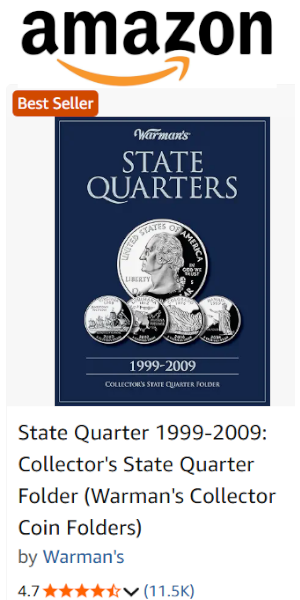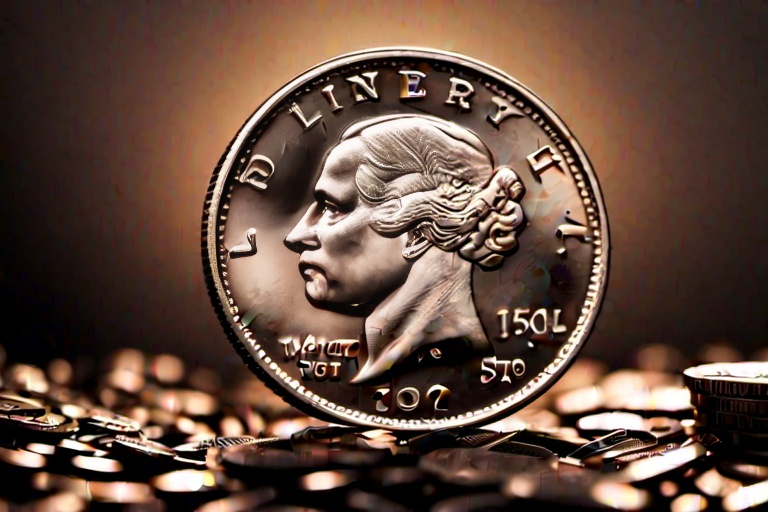Welcome to our comprehensive guide on the intricacies of selling an estate coin collection. As a seasoned coin dealer and collector with an extensive three-decade background in the field, I’ve observed the evolution of coin values and the dynamics of collecting. It's my pleasure to share insights that will aid those in the executor's seat of an estate or any enthusiast keen on understanding the nuances of estate coin collections. This article is crafted to shed light on the importance of accurately valuing an estate coin collection, the research involved, and strategic steps to behold a remunerative outcome for these treasures.
Welcome to our comprehensive guide on the intricacies of selling an estate coin collection. As a seasoned coin dealer and collector with an extensive three-decade background in the field, I’ve observed the evolution of coin values and the dynamics of collecting. It's my pleasure to share insights that will aid those in the executor's seat of an estate or any enthusiast keen on understanding the nuances of estate coin collections. This article is crafted to shed light on the importance of accurately valuing an estate coin collection, the research involved, and strategic steps to behold a remunerative outcome for these treasures.
Evaluating an Estate Coin Collection
Handling a coin collection as part of an estate liquidation involves a spectrum of responsibilities. The value assessment of varied assets such as real estate, fine jewelry, monetary accounts, and individual retirement accounts (IRAs) can be a daunting task. Discovering a coin collection may add to the complexity, particularly if numismatics is a new domain for you.
A significant part of personal savings for many who endured the Great Depression involved U.S. Silver coins—dimes, quarters, half dollars, and silver dollars. While these coins may not be the rarest, they are coveted due to their high silver content, a characteristic no longer present in modern U.S. Coinage. In estate collections, it's common to find not only these silver coins but also bullion coins composed of gold, silver, and platinum. The value of bullion coins is mostly based on their metal content, as opposed to any numismatic or collectible value.
This initial hurdle requires overcoming the trepidation surrounding the coin sorting and inventory process and distinguishing valuable pieces. One must contend with avoiding unfair deals and locating reliable coin dealers—challenges that can feel formidable for the unversed.
The primary goal for anyone dealing with an estate coin collection is to actualize the best possible return on investment. This endeavor necessitates a commitment to research and a keen understanding of the coins’ worth. Let's explore the intricate steps necessary to sell an estate coin collection ensures a straightforward and advantageous transaction.
Step One - Assess and Organize
Diving headfirst into the coin collection without preliminary analysis can lead to a squandering of time and resources. It's advantageous to comprehend whether the collection belonged to an avid collector, was accumulated with investment in mind, or represents a mix of the two. Valuable coins are generally stored with care in specialized albums, holders, or have certifications from recognized grading services.
The gravest error you could commit is to clean the coins. Such actions can lead to an irreparable detriment to their surfaces, and thus, diminish their values. Coins maintain their prime worth when they remain unaltered, regardless of their type—be it bullion, collectible, or numismatic.
Start the organization process by sorting coins into like categories. Group dimes with dimes, quarters with quarters, and so forth. For more structured collections, such as silver dollars, further arrange them by their specific types, like Trade versus Morgan silver dollars. This initial organization paves the way to a better understanding of the collection at hand, which, in turn, informs decisions about the ideal methods for liquidation.
In our following segment, we shall delve deeper into the vital process of researching coin values, identifying esteemed coin dealers, and uncovering the most favorable avenues for selling your estate coin collection.
Determining Your Collection's Value
Before engaging with coin dealers, a personal appraisal of the collection is essential. This involves categorizing the diverse coins within the collection—Morgan and Peace silver dollars, international coins, paper currency—and so forth. It’s pivotal to keep coins in cases or albums untouched, as their housing may indicate lower mintage or key dates.
During the organizing phase, employ methods to safeguard the coins. Consider using plastic tubes for hefty denominations, albums for sets, and individual holders for prized coins. Exercise caution with mylar flips, which can inflict scratches, reducing the coin's worth. Always opt for holders made from inert materials over those with PVC, which can degrade coins over time.
Resource guides such as "The Official Blue Book: A Handbook of U.S. Coins,” and the "Blue Sheet" from the Coin Dealer Newsletter, provide estimated coin values. Such resources are fundamental in pinpointing valuable coins in your collection. However, while these guides offer ballpark figures, they may not mirror the precise market demand. Coins with less than one million in mintage are likely to hold collectible value. Your research should help you spot these rarities.
Upon contacting coin dealers for appraisals, be detailed about your collection. A comprehensive description, including the count of coins, their denominations, and compositions, allows the coin dealer to furnish an accurate evaluation.
During the assessment, the dealer should meticulously inspect the collection, listing and pricing each item independently—especially the rarities. For large collections, or those with time constraints, consider pre-sorting older coinages, coin sets, and any gold or certified specimens.
Contemplate professional grading for coins you suspect might be notably rare or valuable. Grading certifications provide authenticity verification and aid in coin protection. Nevertheless, ponder the prospective cost against the potential increase in market interest.
Selling Methods for Your Estate Collection
The process for selling your coin collection can be daunting. Thankfully, various approaches can help you liquidate effectively and profitably.
Local coin dealers and coin shops represent a convenient and swift option for selling. Prioritize acquiring several estimates to confirm you are receiving a fair price for your collection. Delve into the dealer's reputation, professional affiliations, and customer reviews.
If visiting each dealer is impractical, consider using an itemized spreadsheet to gather preliminary appraisals via email. Dealers typically offer this service, pending physical examination adjustments.
Auction houses are suitable for extensive collections of rare coins, albeit they often necessitate a minimum collection value, usually around $10,000. With auction houses, you may achieve higher prices per coin but remember to account for auction fees and shipping costs, which can consume about 20% of your earnings.
For online selling, eBay and similar platforms extend your reach but require careful management of listings, including individual photographs, and dealing with fees related to listings, auctions, and transactions, often amounting to a 15% cut. Moreover, shipping, insurance, and customer interactions are additional considerations.
Choosing the Right Strategy
With the plethora of selling avenues at your disposal, ponder over what takes precedence—the highest possible prices for your coins (after fees) or a quick sale at competitive rates.
For those seeking professional guidance in appraising the value of their coin collection, Atlanta Gold & Coin Buyers is a stalwart resource, providing expert evaluations for diverse types and sizes of coin collections, including no-obligation appraisals and mail-in options for convenience.
The path to selling an estate coin collection demands patience and a detail-oriented approach, yet is navigable with knowledge and methodical planning. Assessing, organizing, researching, and wisely selecting your selling strategy puts you in a favorable position to manage the complexities and emerge with a sense of accomplishment and a rewarding outcome.
Information for this article was gathered from the following source.


